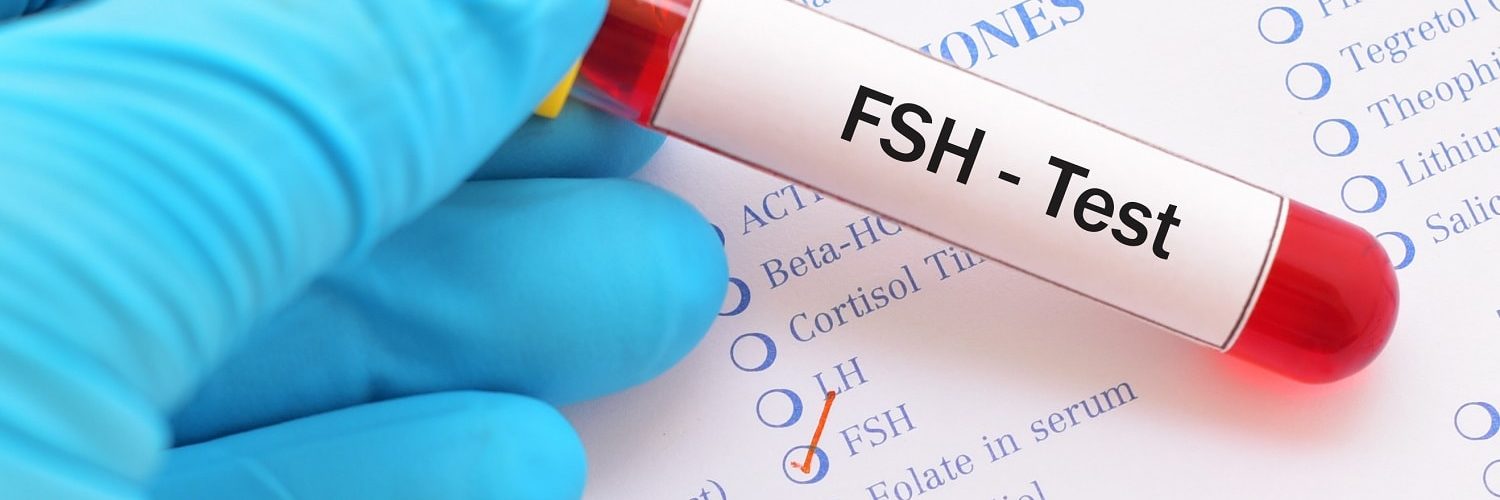
Follicle stimulating hormone (FSH) is an important part of the human reproductive system. Its role is to trigger the development of ovarian follicles in the monthly menstrual cycle which, when everything is working as it should, leads to ovulation. Levels fluctuate throughout the month according to where you are in the cycle and so the timing of any measurement is important. High FSH and pregnancy are not mutually exclusive but, at the same time, elevated levels could indicate a decline in fertility.
In this IVI blog article, we take a closer look at how FSH works in the body and how levels can be an indicator of the likelihood or possibility of becoming pregnant. We also explain how the test is carried out and consider what your next steps might be if the diagnostic results show that you have high FSH levels.
How does FSH work in the body
The role of FSH in your body and in your menstrual cycle is to stimulate the premature eggs (oocytes) in the ovaries to start to grow. Each one of these is found inside a fluid-filled sac, which is the follicle. The hormone works in a mutual balance with oestrogen. As the presence of FSH induces the follicles to grow, they start to excrete oestrogen and the more mature they become, the more oestrogen they release. In turn, high oestrogen levels induce a negative feedback, and regulate the FSH levels that will drop after the ovulation. On the other hand, if the follicles fail to grow and mature, levels of FSH will remain high and even increase in an attempt to stimulate follicle growth.
Due to this function, it is possible to deduce from abnormally high FSH levels that the ovarian reserve has been depleted and that the quantity of the remaining eggs is declining. This is an entirely natural process and normally starts to be observed in women from the age of about 38. However, it is also possible for a younger woman to have elevated FSH levels and this could be an indication of premature ovarian failure.
How is a test for high FSH levels carried out?
Levels of FSH are measured using a blood test and the procedure is like any other blood test in which a small amount of blood is extracted from a vein, usually in the arm. As with any other blood test, the results are normally available within a few days. The timing of the test is crucial because, as levels fluctuate throughout the month, it is important to take the test on a day when the medical team know which level of ‘normal’ to expect. This is generally on day three of the menstrual cycle, with the first day of your period counting as day one. This is why the test is often referred to as the ‘Day 3 FSH Test’.
It is also possible to buy over-the-counter home FSH test kits which are based on a urine test rather than blood analysis. Some of these claim to be able to confirm whether you have reached menopause and some to test whether the ovarian reserve is low. There is however widespread scepticism regarding their effectiveness. The clear advice of the NHS is to consult your GP for further fertility tests, including blood hormone tests, if you have been trying to become pregnant for 12 months, or for women over 35, after six months.
Can high FSH levels be reduced?
It would be a simple matter to reduce the level of FSH in your body through the administration of oestrogen, but this is actually coming at the issue from the wrong direction. FSH levels are merely a proxy, or indicator, of the remaining ovarian reserve, so there would be no point in artificially reducing levels which were high; the ovarian reserve would be unaffected. It’s also important to remember that high levels are not necessarily a sentence of complete infertility, only of a lower ovarian reserve.. With this in mind, what are the possible next steps?
How can fertility treatment help?
Diagnosis
The first step towards help with fertility is by means of a thorough and accurate diagnosis. When you visit one of our IVI clinics, the test for elevated FSH is only one of the routine diagnostic tools that can be used to assess the ovarian reserve. Other checks to test the ovarian reserve include measurements for:
- Anti-Müllerian hormone which measures the number of oocytes available in any given month. This is also an indicator of the probable ovarian response to treatment and it is the most common tool used nowadays to assess the ovarian reserve.You can read more about the ovarian reserve and our diagnostic tests in this IVI article or there is more about the causes of infertility and the full range of testing we undertake on our website.
Treatment
The next step after diagnosis is determining which course of intervention or treatment is the right one for you. Since everyone is different and has a different situation, it is outside the scope of this article to predict what that may be. But you can be sure that all of your history, circumstances and aspirations will be fully recognised and taken into account when we discuss your case and suggest how we might help.
You could prepare for a visit to one of our clinics by browsing the range of treatments available, come to one of the Patient Open Evenings in our flagship Wimpole Street clinic, or go ahead and get in touch with IVI to make your first appointment.





Comments are closed here.